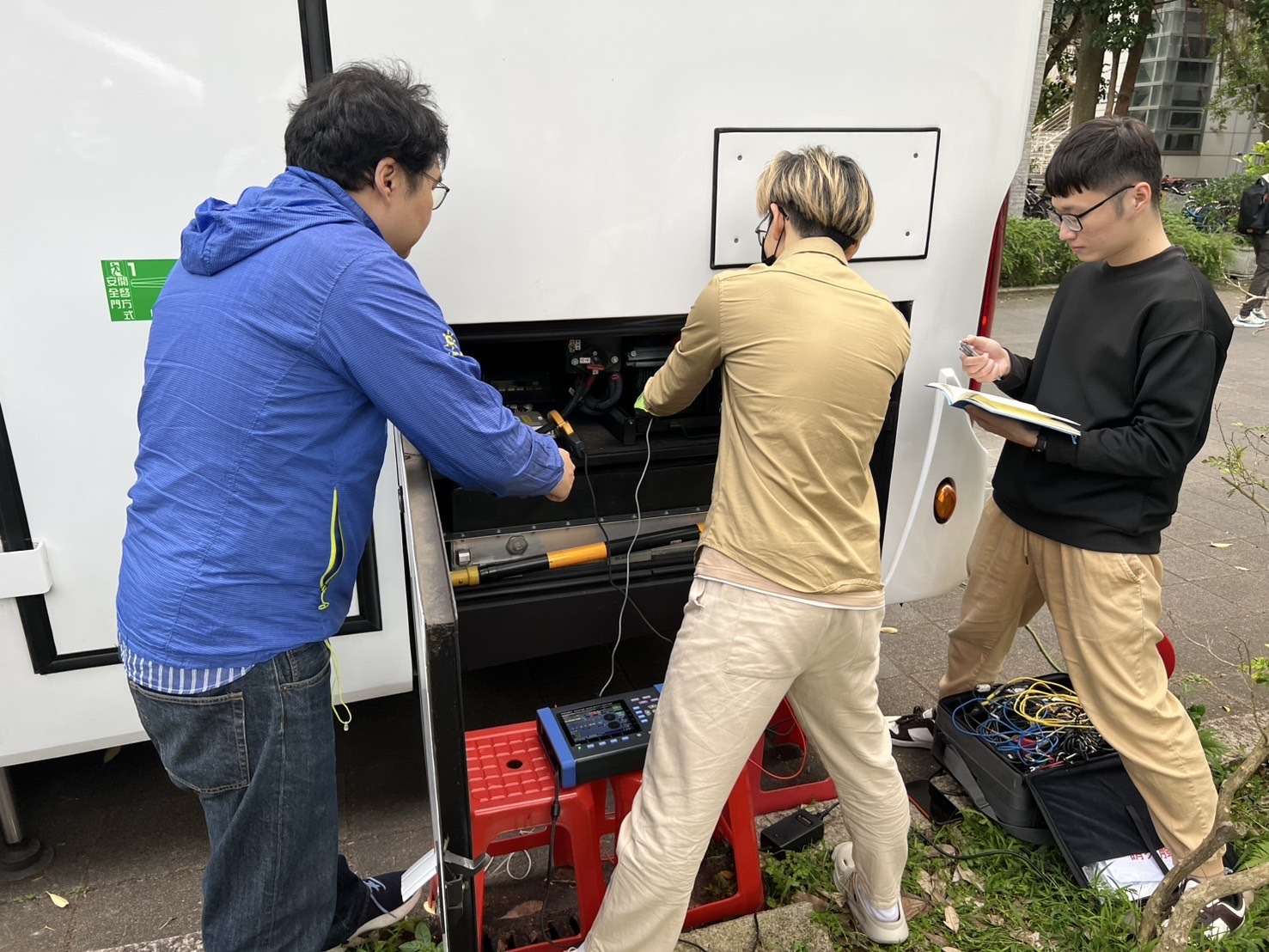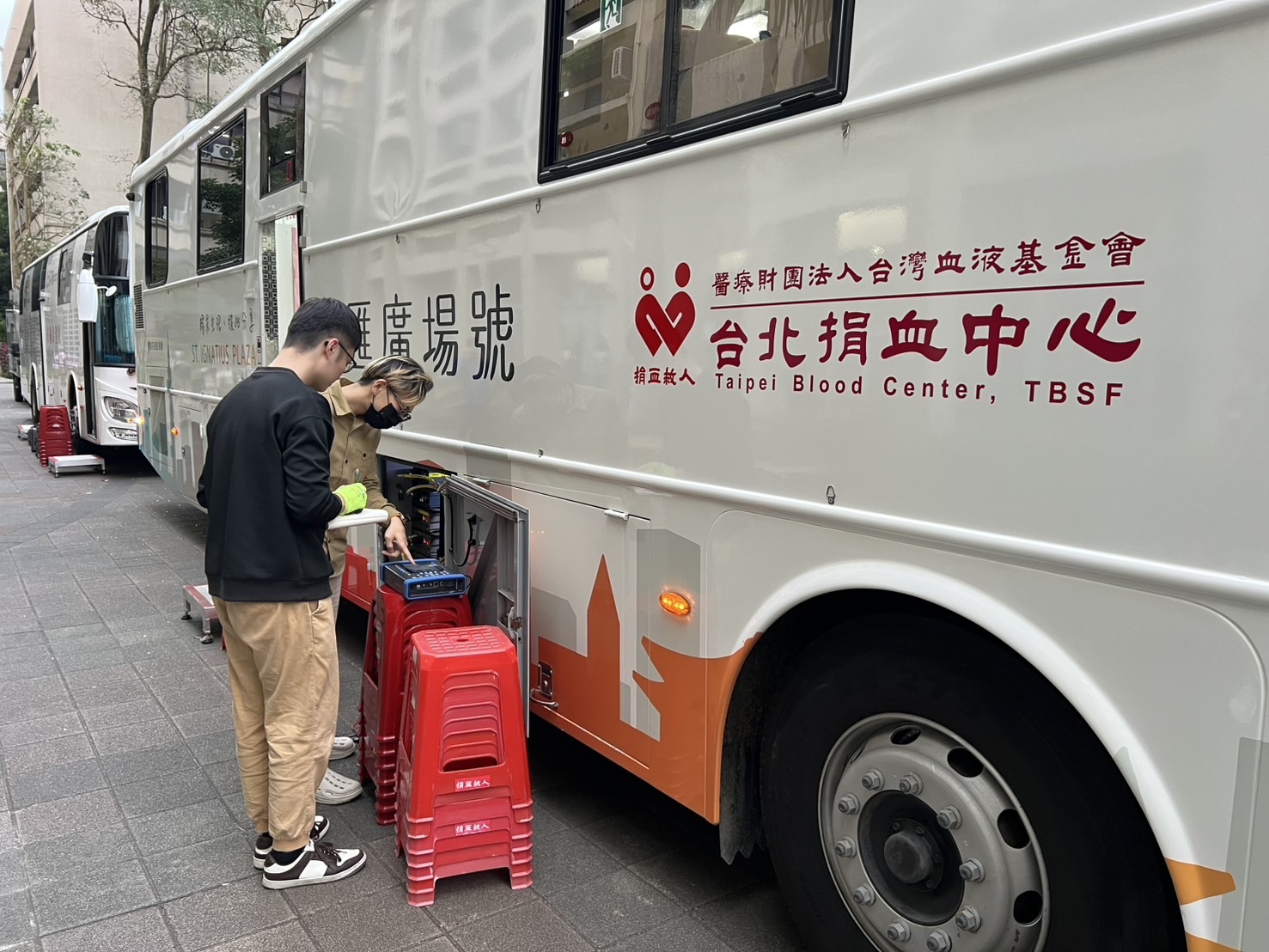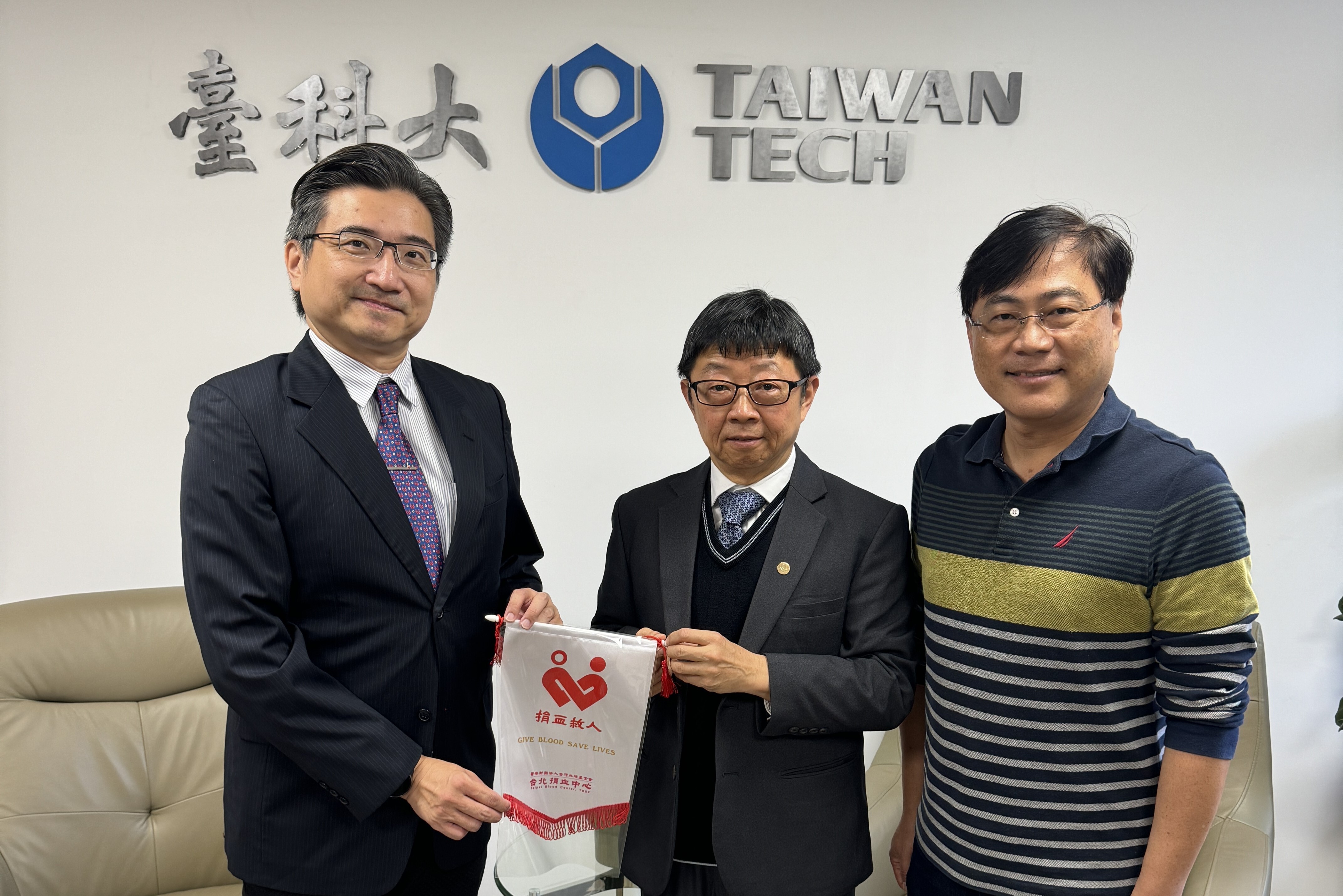Taiwan Tech introduces electric blood donation vehicles, cutting 10 tons of carbon emissions annually.
In the face of global environmental and climate change threats, sustainable development and achieving a low-carbon, net-zero future have become key issues for countries worldwide. Starting in September 2024, Taiwan Tech has introduced the new electric blood donation vehicle, “Rotary Hope” in collaboration with the Taipei Blood Center, to serve the university community. This initiative combines blood donation with carbon reduction, showcasing Taiwan Tech’s commitment to both public welfare and sustainable development.
As environmental and green energy awareness increases, electric blood donation vehicles, which replace traditional diesel-powered ones, have emerged. To further assess the carbon reduction benefits of these new vehicles, Taiwan Tech has partnered with its campus energy management system, the Department of Electrical Engineering, the Division of Health Services of Office of Student Affairs, and the Center for Sustainable Development and Institutional Research to launch a series of collaborative activities.

Taiwan Tech formed a research team to measure carbon emissions from electric blood donation vehicles.
From September to December, the electric blood donation vehicle will regularly visit the Taiwan Tech campus on the first Wednesday of each month. In addition to encouraging faculty and students to donate blood, the vehicle’s carbon reduction results will also be monitored. According to data analysis from Taiwan Tech’s research team, the electric blood donation vehicle reduces carbon emissions by approximately 44.7% compared to traditional diesel-powered blood donation vehicles. With electric vehicles operating around 20 times per month, it is estimated that they will reduce over 10 tons of CO2 emissions annually. This not only demonstrates the significant impact of the electric vehicle in reducing carbon footprints but also highlights Taiwan Tech’s practical achievements in promoting low-carbon transformation.

According to data analysis from Taiwan Tech’s research team, the electric blood donation vehicle reduces carbon emissions by approximately 44.7% compared to traditional diesel-powered blood donation vehicles.
During the electric blood donation vehicle’s presence on campus, faculty and students had the opportunity to participate in and experience firsthand the vehicle’s innovation and convenience, gaining a deeper understanding of environmental protection issues. These activities not only enriched the campus’s commitment to sustainable development but also further encouraged faculty and students to incorporate low-carbon practices into their daily lives.
The introduction of the electric blood donation vehicle has added a new environmental value to public welfare initiatives. While this semester’s blood donation activities have concluded, Taiwan Tech encourages the faculty and students to continue following the Taipei Blood Center’s updates and to support public welfare through action, ensuring that the spirit of giving does not end with the vehicle’s departure from campus.
Taiwan Tech’s commitment to sustainability is not only reflected in its long-term goal of achieving 50% carbon neutrality by 2030 and 100% carbon neutrality by 2049, but also in its concrete actions. From promoting campus blood donation campaigns to introducing the electric blood donation vehicle and monitoring carbon emissions, the university continues to collaborate with various sectors of society. Through a series of practical measures, Taiwan Tech is integrating sustainable development into campus culture and daily life, striving for joint efforts between faculty, students, and the wider community to actively practice environmental protection and social responsibility.

Taiwan Tech collaborates with the Taipei Blood Center, demonstrating the university’s commitment to both public welfare and sustainable development. Pictured are President Jia-Yush Yen, Distinguished Professor Cheng-Chien Kuo from the Department of Electrical Engineering, and Mr. Jun-Hong Liu, Section Chief of the Taipei Blood Center.